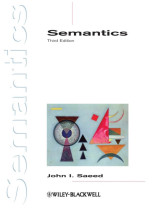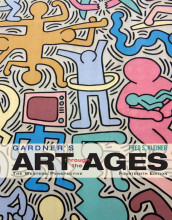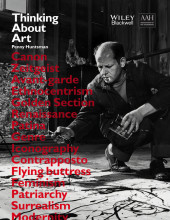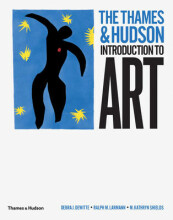Antigone
20 important questions on Antigone
How are Thebes and Athens presented in Attic (Athenian) tragedy?
- Citadel in the plains/mainland
- Aristocratic/tyrannical
- Violent, cursed
- Isolated (incest, civil war)
- On the side of the Persians
Athens:
- Harbour city/seashore
- Democratic
- Harmonious
- Hospitable
- Led the resistance against the Persians
Which tragedies are about Thebes?
- Hera kills Semele
- Dionysus kills Pentheus
- Niobe killed by Apollo and Diana
- Oedipus kills his father
- Oedipus' sons kill each other
- Oedipus' daughter Antigone condemned to death by his uncle Creon
Which tale comes before the story of Antigone?
- Curse by Oedipus and quarrel of Eteocles and Polynices
- Compromise of alternating kingship
- Eteocles refuses to honour the deal
- Polynices attacks Thebes with allies (Seven against Thebes)
- Brothers kill each other in fight
- Creon becomes the new king
- Higher grades + faster learning
- Never study anything twice
- 100% sure, 100% understanding
Why was Sophocles' Antigone special?
What is the plot of Sophocles' Antigone?
- Creon forbids burial of Polynices
- Antigone buries her brother anyway, obeying divine laws rather than Creon’s orders
- Creon condems Antigone to being buried alive
- Teiresias corrects him
- His amendments come too late: Antigone has hanged herself
- Creon’s son Haemon and wife Eurydice commit suicide
- Creon is utterly lost
What are the issues with who is right in Antigone?
- Laws and interest of state, according to Creon.
- Divine laws, according to Antigone.
- Family honour, according to Antigone.
The problem is male authority vs. female resistance.
Why was Antigone herself probably right, according to the play?
- She was defended by the citizens.
- She was defended by Tereisias, who could explain the divine laws.
What can be said about the prologue of Antigone?
- According to Aristotle, Antigone wins the audience's sympathy because she is the first character to speak.
- For a Greek tragedy, Antigone is abnormally bold, whereas Ismene is more timid/"normal"/"natural"
- Refusing someone's burial is quite an extreme punishment.
What is the role of the chorus in Antigone?
They are happy about the war endiong and they cosnider Polynices a traitor.
While their words are ambiguous, they dispute Antigone and raise questions.
Antigone is entirely alone, not supported by her sister or by the chorus.
What is Creon's point of view in Antigone?
- He protects the polis.
- He loves his country.
- He firmly believes in correct burial rites.
However, when a guard enters to tell him about the burial, he turns out to be a vicious, tyrannical leader.
Creon is unambiguously bad.
With which complex issue is the audience presented at the beginning of Antigone?
Which conclusions can be drawn from the chorus' "polla ta deina"?
- Cleverness can be used for good or evil.
- It is important to both respect the state and the gods.
The chorus gives a criterion for judging human behaviour, which is difficult because Antigone's choice lies somewhere in between as she has committed a "pious crime".
In what way have the Labdacids been cursed?
What is the relationship between Haemon and Antigone?
What is the peripeteia/turn in Antigone?
This is the purification of the polis, as now Creon's family is gone.
How can the characters of Antigone and Creon be compared?
- Individual libety
- Obeying divine laws
- Helping her family
- Consistent
- Self-willed
- Miserable and dead
- Female
Creon:
- Fighting for the common good
- Obeying human laws
- Helping the polis
- Inconsistent
- Tyrannical
- Miserable and alive/punished
- Male
Which conclusion can be drawn about Antigone as a whole?
- Nobody is entirely right or good
- The gods are arbitrary and confusing: they punish Creon, but do not save Antigone
- The audience needs to think for themselves
How was Antigone received from the 18th century on?
Dramatizing of opposition between individual conscience and the laws/values of the community makes it play par excellence to think about political resistance in all kinds of contexts
How does Jean Anouilh's Antigone (1941)differ from the original?
- Antigone's brothers are portrayed as unheroic.
- Class differences are important (nurses, guards, royal family)
- Antigone is naive, lonely and unsure of herself.
- Creon tries to help Antigone; he isn't cruel, but cynic.
This version was less idealising and black-and-white, and, since it was published during WWII, sparking the controversy whether or not Anouilh was a traitor who wanted to portay the "bad guys" in a more positive light, just trying to help everyone be "happy".
How can Anouilh and Sophocles be compared?
Thinking about ideological issues relevant in V BC:
- Human law / Divine law
- Polis (town) / Oikos (home and family) - Male /Female
Anouilh:
-Political situation in France during war:
-Idealist Resistance or pragmatism?
-Philosophical dimensions: how should one react to outside political forces? - Old / Young
The question on the page originate from the summary of the following study material:
- A unique study and practice tool
- Never study anything twice again
- Get the grades you hope for
- 100% sure, 100% understanding































